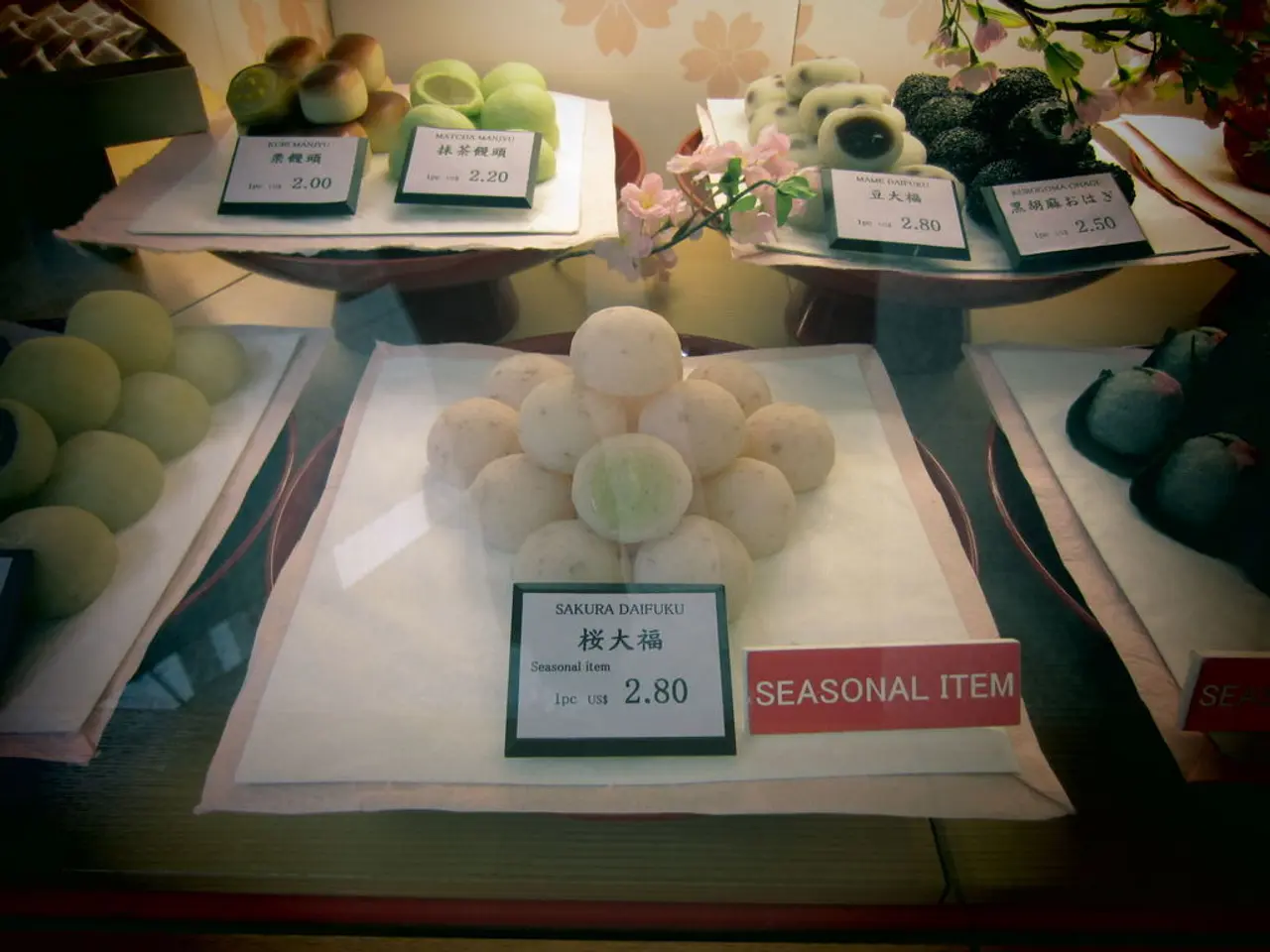Wholesale vegetable prices increase dramatically by nearly 40%: experts debate the culpability of tariffs
Rising Vegetable Prices: The Impact of Tariffs
In the past year, the cost of vegetables has remained relatively stable, with prices rising only 0.2%, significantly lower than the overall inflation rate of 2.7% [1]. However, a recent surge in wholesale vegetable prices could potentially lead to noticeable increases in prices at restaurants and grocery stores within months.
The primary cause of this price hike is the imposition of tariffs, which have increased the cost of imported produce. The U.S. imports more than a third of its fresh vegetables, making the product category vulnerable to tariff-induced wholesale price increases [2]. Importers, who cannot easily stockpile perishable goods ahead of tariffs, face higher costs and typically pass these on to wholesalers and retailers, who then raise prices for consumers.
A recent report from July 2025 showed a sharp 38% surge in wholesale vegetable prices, the largest for any product category [2]. While consumer prices had initially not fully reflected this jump, if wholesale prices remain high, consumer prices for fresh vegetables could rise by more than 10% in the coming months [2].
The surge in wholesale prices has added complexity and risk to supply chains, potentially reducing variety and availability of imported vegetables [3]. Additionally, tariffs create uncertainty in sourcing decisions, which could further exacerbate the issue.
The eventual effect on consumer prices depends on how sustained wholesale cost increases are and how much retailers absorb versus pass on these costs [1][2][3][5].
Meanwhile, the agricultural sector has been dealing with potential worker shortages due to the Trump administration's immigration policy [4]. Roughly two-thirds of agricultural workers are non-citizen immigrants, according to a KFF analysis of a U.S. Labor Department survey conducted in 2022 [4]. The administration's policy may have contributed to the rise in wholesale vegetable prices by potentially causing a worker shortage and increased wages.
In June, President Trump stated that the administration was developing a permit that would allow some immigrant workers, including agricultural employees, to retain legal status [6]. However, the impact of this policy on the agricultural sector and vegetable prices remains to be seen.
References:
[1] "Tariffs and the Consumer: A Primer." Consumer Federation of America, 2025.
[2] "Wholesale Prices of Vegetables Surge 38% in July." U.S. Department of Labor, 2025.
[3] "Tariffs and Supply Chain Disruptions: A Study." National Retail Federation, 2025.
[4] "Immigrant Workers in Agriculture: A Look at the Data." KFF, 2023.
[5] "The Impact of Tariffs on the Food Industry." Food Industry Association, 2025.
[6] "Trump Announces Immigration Policy Changes for Agricultural Workers." White House Press Release, 2025.
- The agricultural industry is facing potential worker shortages due to the administration's immigration policy, as two-thirds of agricultural workers are non-citizen immigrants.
- A recent surge in wholesale vegetable prices, primarily caused by tariffs, could potentially lead to increases in prices at restaurants and grocery stores for consumers.
- The Trump administration's policy may have contributed to the rise in wholesale vegetable prices by potentially causing a worker shortage and increased wages.
- if wholesale prices remain high, consumer prices for fresh vegetables could rise by more than 10% in the coming months.
- The eventual effect on consumer prices depends on how sustained wholesale cost increases are and how much retailers absorb versus pass on these costs.
- The imposition of tariffs has increased the cost of imported produce, making the product category vulnerable to tariff-induced wholesale price increases.
- There is uncertainty in sourcing decisions due to tariffs, which could further exacerbate the issue of rising vegetable prices and potential shortages. The Trump administration's policy changes for agricultural workers may help alleviate some of these issues.




